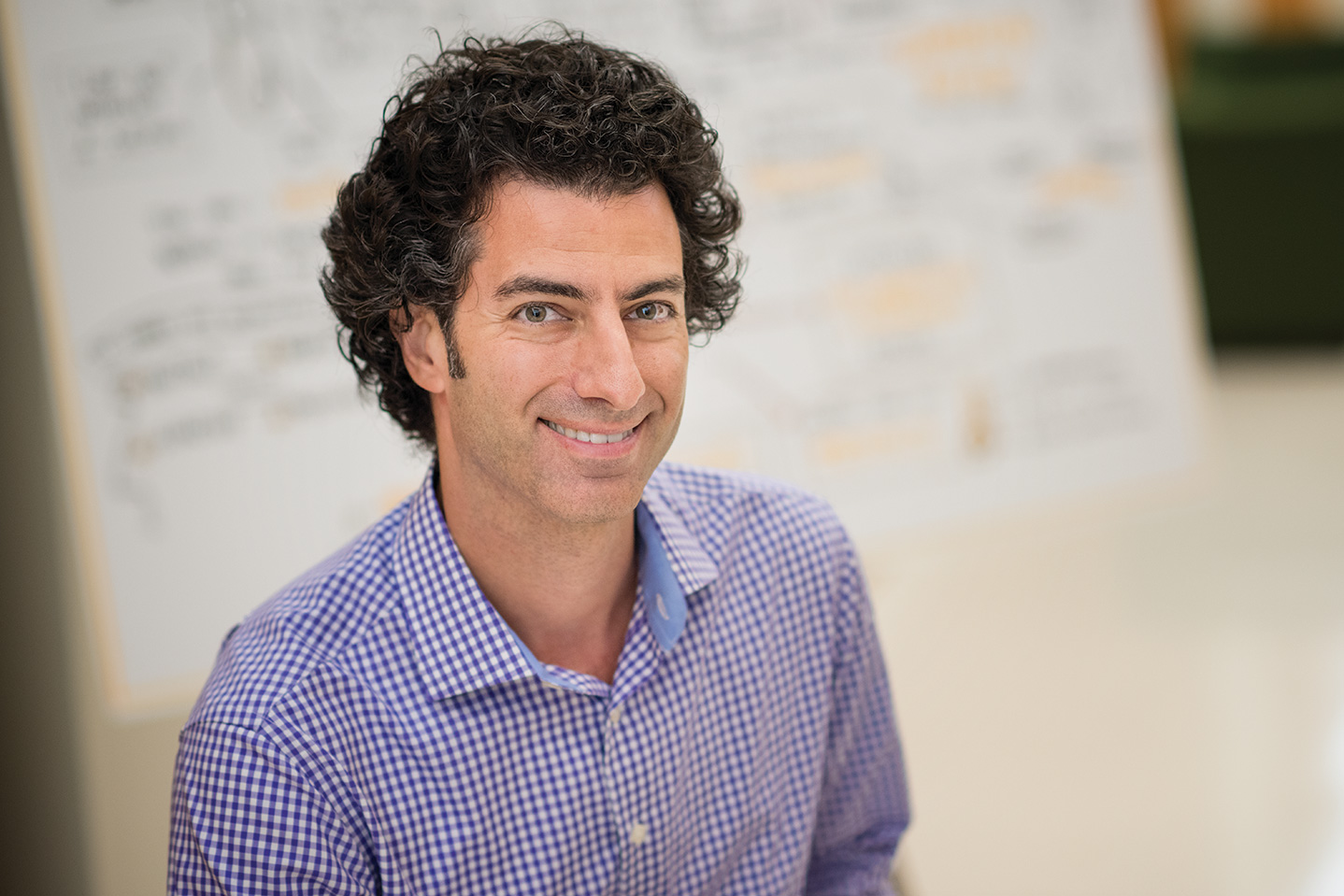
John Colaruotolo ('99, '04 M.A.) earned two degrees in music, but he is playing to a different crowd as a solution designer and workshop facilitator for the Boston-based firm Collective Next. He leads collaborative discussions -- while drawing on whiteboards -- with leaders from dozens of Fortune 500 companies and other organizations, such as UNT, to help with areas such as strategic planning, product development or any challenge to be addressed.
"It is a listening game," says Colaruotolo, who lives in Prosper. "When I'm scribing, or graphic facilitating, it's exercising the same set of muscles as real-time music improvisation. Listening for big themes, finding connections, synthesizing information, reacting in real-time and ultimately 'performing' the output onto a whiteboard."
His task is to capture the discussion and its ideas through his drawings. He says the goal is for the members of the organization to work together to create a strategy and address issues through interactive brainstorming sessions, instead of hiring an outside consultant to tell them what to do.
"Solutions to complex problems typically live within the collective intelligence of an organization," he says.
Colaruotolo, a pianist and percussionist who majored in composition, was in graduate school when he went to dinner with his future wife, Lauren, and her friends. One of those friends described his work facilitating workshops at Ernst & Young in Dallas, and Colaruotolo was hooked.
When he facilitated at UNT's Planning Implementation Workshop in August, he helped UNT administrators, faculty and staff lay out a roadmap for the university to become a global leader in education innovation. He drew vibrant illustrations -- for example, a web showing how students' desires to design their own degrees by accessing courses outside their major are interconnected with their interests and career aspirations.
"Because the process is real-time, it has an element of risk to it. You're often exposed like a soloist," he says. "But at the end of the workshop, you have an artifact that becomes useful for years to come."